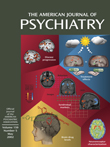Comorbid Posttraumatic Stress Disorder: Impact on Treatment Outcome for Obsessive-Compulsive Disorder
Abstract
OBJECTIVE: The study tested the effect of comorbid posttraumatic stress disorder (PTSD) on behavior therapy outcome for obsessive-compulsive disorder (OCD). METHOD: Subjects were 15 patients with treatment-refractory OCD who were admitted consecutively to a short-term residential facility. Eight met DSM-IV criteria for comorbid PTSD. Patients participated in coached and self-directed behavior treatments of exposure and response prevention as well as in group treatments targeting specific OCD symptoms and related difficulties. Severity of OCD and depression were assessed at admission and exit. RESULTS: Patients with comorbid PTSD showed no significant improvements in OCD and depression symptoms. OCD and depression symptoms improved significantly more in patients without comorbid PTSD than in patients with comorbid PTSD. CONCLUSIONS: Behavioral treatment (with or without medication) of OCD may be adversely affected by the presence of comorbid PTSD.



